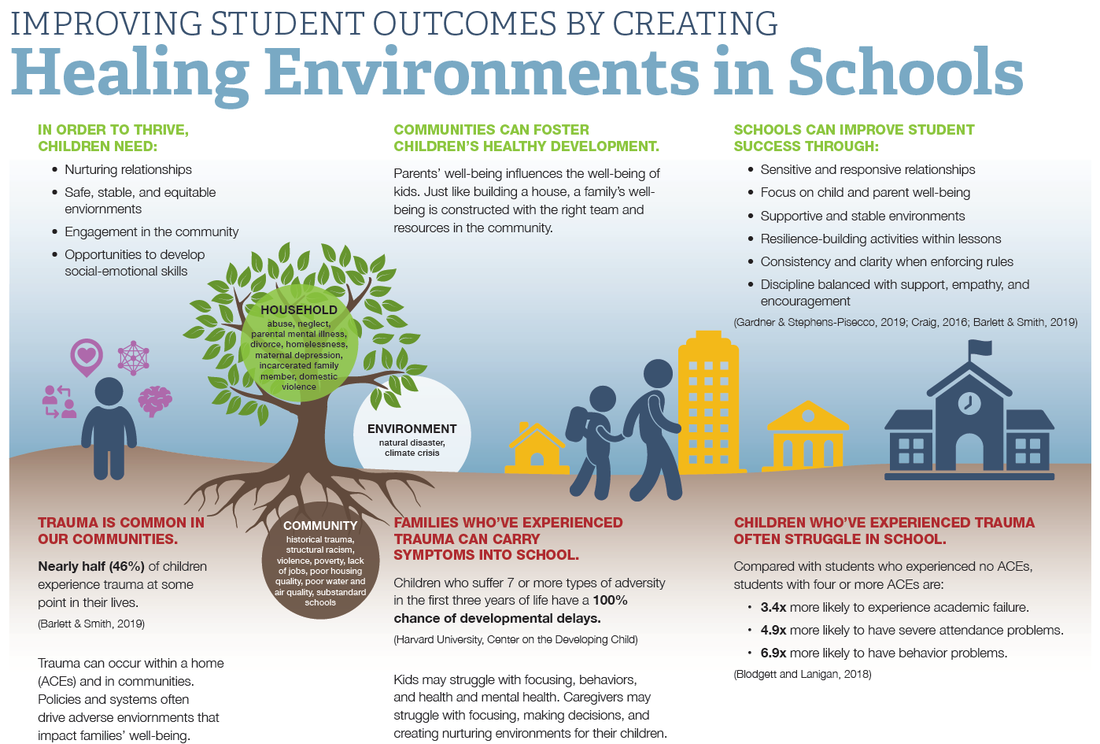|
A child's developing brain is shaped by the relationships and environments a child experiences from the start. If, at a young age, a child cannot predict where, when or how much stress they will experience at any given time, their brains and bodies can become hardwired to react more quickly with a fight, flight, or freeze response. By the time they are in school, students who experience childhood trauma may struggle to concentrate, exhibit inappropriate behaviors, and are more likely to fall behind academically.
Educators and staff in the education field have a unique opportunity to create trauma-informed, healing-centered environments that support children and families. |
Sign up to receive ongoing updates in education
|
Opportunities to Respond
Trauma-informed schools have seen improvements in academic, behavioral, and health outcomes for students and satisfaction for staff. This document shares opportunities for schools to create healing environments for students.
Education Training
|
We offer a curriculum for educators and school-based personnel that fulfills Iowa's requirement to be trained in ACEs and toxic stress. Training is available online or in-person, and we offer a train-the-trainer presentation for school-based and education program staff to deliver with ongoing coaching. The goal of our training is to leave you with an understanding that there is a great deal of hope in responding to the impact of ACEs and toxic stress in school systems.
|
Additional Resources for Educators
Early Care and Education
This section includes resources for professionals who work with young children or their parents in early care and early education settings.
This section includes resources for professionals who work with young children or their parents in early care and early education settings.
K-12 Education
The links in this section include resources for professionals in the Kindergarten through grade 12 education sector including teachers, aids, administrators, school counselors, staff and other professionals who work closely with educators or school-age youth.
The links in this section include resources for professionals in the Kindergarten through grade 12 education sector including teachers, aids, administrators, school counselors, staff and other professionals who work closely with educators or school-age youth.
- PACES Connection in Education
- Safe Supportive Learning
- Non-violent Crisis Intervention Training
- Transformation of Children's Mental Health Services: The Role of School Mental Health
- National Child Traumatic Stress Network Resources for School Personnel
- Trauma Sensitive Schools
- Flex Academy builds empathy to foster academic success
Post-Secondary Education
The links in this section include resources particularly relevant for professionals in post-secondary education.
The links in this section include resources particularly relevant for professionals in post-secondary education.

